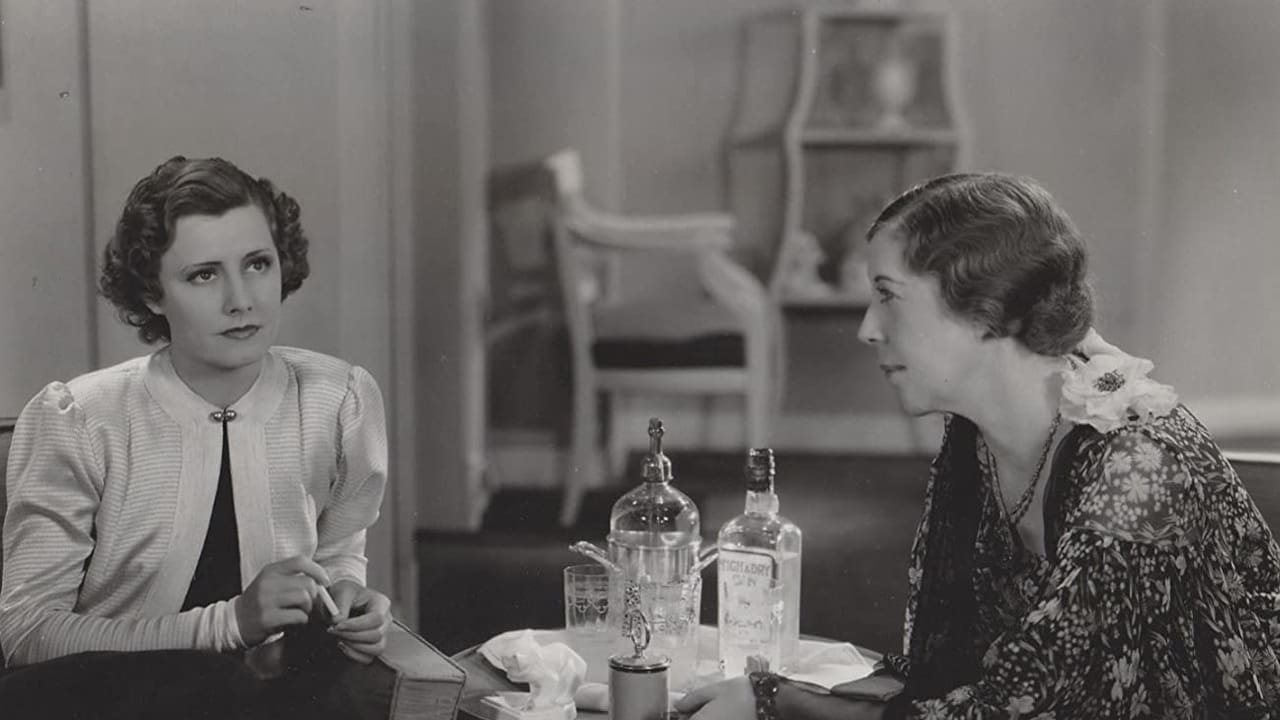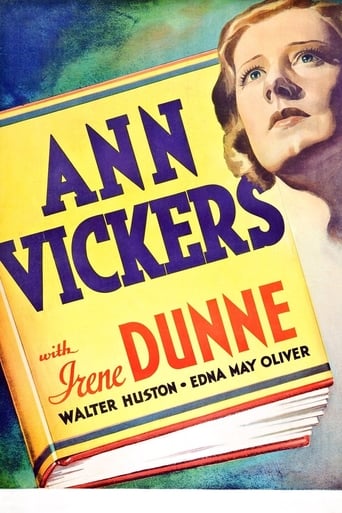

I like the storyline of this show,it attract me so much
... View MoreThe movie's neither hopeful in contrived ways, nor hopeless in different contrived ways. Somehow it manages to be wonderful
... View MoreThe biggest problem with this movie is it’s a little better than you think it might be, which somehow makes it worse. As in, it takes itself a bit too seriously, which makes most of the movie feel kind of dull.
... View MoreEasily the biggest piece of Right wing non sense propaganda I ever saw.
... View MoreLackluster romantic drama with feminist elements. Basically it's Irene Dunne spouting off about wanting to have her own career and being involved in relationships with douchebags. All of the success she has career wise is ultimately attributed to a man and the film's message seems to be that a woman's happiness only comes from the love of a man, so I really don't see where feminists are supposed to find much to love about this film. The brief middle part of the film dealing with the brutal goings-on at a women's prison are most interesting. They should've made an entire film of that. The rest is forgettable. The cast is fine. No standouts. Edna May Oliver is wasted, which is just criminal.
... View MoreANN VICKERS is a bizarre tear-jerker from the early days of sound movies featuring IRENE DUNNE as a woman who is well-intentioned but makes all the wrong choices in life, including the men she thinks she loves.BRUCE CABOT is her first mistake, a man proclaiming great love for her but abandoning her not long after she bears his child. In a weak supporting role, she treats CONRAD NAGEL as a man she cannot love but values as a friend. He's not too happy about that arrangement.Then comes married man WALTER HUSTON, unhappily married who finds Dunne a refreshing bit of love interest. She has a career that keeps her busy and stands by him when he is accused of mismanaging funds. He's soon imprisoned but she finds a way to get his case some political attention and eventually he is free to marry her.That's about it, all handled in dreary fashion with hardly a note of music on the soundtrack to lift it out of the doldrums when it gets too soggy to bear. As social commentary on conditions in the 1930s and women's issues, it's a failure. Miss Dunne plays a social worker who rises to play an important role in the penal system for females.IRENE DUNNE suffers nobly, but it's a weak vehicle for a strong actress and she can do nothing to give the film a sense of real life struggles. Chalk this one up as a failure, even if it was based on a novel penned by no less than Sinclair Lewis. Evidently, not too much has been retained from his novel.Summing up: Not worth your time. Any film that wastes the talents of EDNA MAY OLIVER as a Duchess has got to make you wonder what they were thinking. It's her dullest role ever.
... View MoreWhat can have been on Irene Dunne's mind when she accepted the role in this distasteful account of a woman of negotiable morals? Certainly, the Irene Dunne of the 1940's, whose reputation as a faithful Roman Catholic who publicly abhorred smut, and shunned any film scripts or Hollywood society, that might be even be remotely construed as corrupting public morals--would never have become associated with such a dubious project as this.Perhaps, New York's Cardinal Spellman, in his private audience with her, gave her a good dressing down over this role? That we will likely never know, inasmuch as she never spoke of it in later years, though she did denounce her morally suspect, (though quite successful) 1932 film, "Back Street" as "trash".Certainly by the time she received the distinguished St. Robert Bellarmine Award in 1965 for exemplary public Catholicism, "Ann Vickers" was no longer recalled by the general public.Suffice it to say that "Ann Vickers" works neither as entertainment or social commentary.Miss Dunne's role as an adulterous social worker, who sleeps around, (between reforming prisons and writing a best seller on correctional rehabilitation) doesn't dovetail with her temperament or on screen demeanor, and one keeps suspecting that the whole thing is a kind of tongue in cheek gag, (what else can we think when we witness a montage of Miss Dunne's sympathetic beatific gaze superimposed over a shot of a female prisoner being scourged?) By films end, she has renounced careerism in favor of marriage, (to crusty convict Walter Huston no less--and what kind of lunacy would ever conceive of pairing these two romantically?) Irene Dunne completists will no doubt wish to see this curiosity, if only for the chance to hear her promise to rehabilitate a cocaine addict under her charge: "I'm going to get you off the snow cold turkey" !!! Well, if nothing else such sordid goings on, do present her light years from her usual milieu of operatic trills, furbellowed chiffon and strawberry phosphates--cocaine addiction not being the first subject one associates with the irreproachable Miss Dunne.
... View MoreIt is doubtful if, at this point in time, anyone needs to be reminded of the consistent excellence of the versatile Irene Dunne, whose presence enhanced drama, comedy and musical films for many years. ANN VICKERS recalls to us how effective her subtle talent was even early in her career, playing a character alternately strong and vulnerable in a story too crowded with incident to give its major players the room they require to draw the characters fully. As a capable and resolute professional woman involved in social work and prison reform, Dunne's title character is curiously susceptible to the less-than-worthy men she finds more appealing than the steady earthbound types she encounters but does not favor. This contradictions accounts for a large part of the interest in her character, discreetly but firmly abetted by the nuances of yet another outstanding performance. Irene Dunne is perhaps the most reliable of all leading ladies. If you share the admiration of many for her work, this somewhat obscure picture will not disappoint you.
... View More